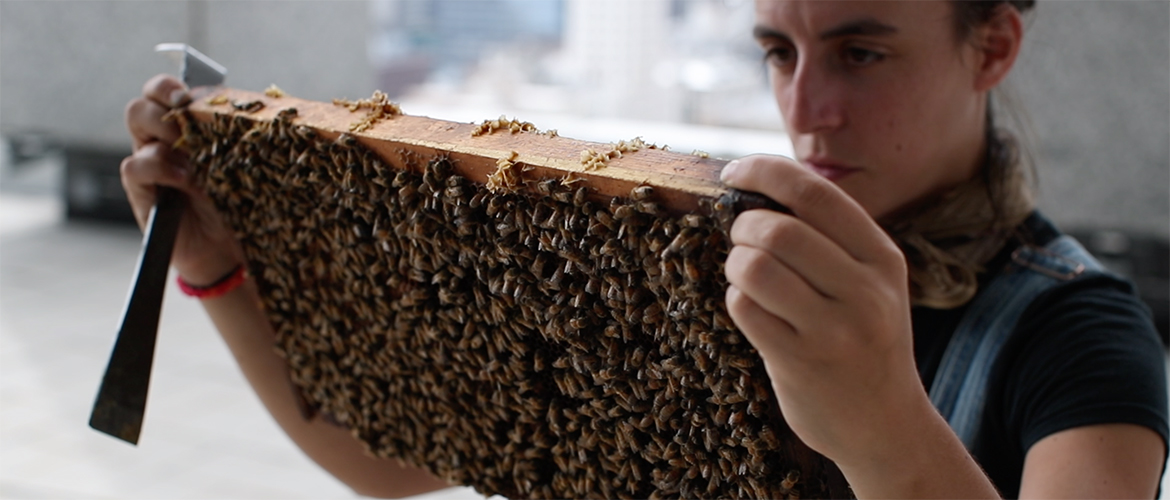Blue Cross and Blue Shield of Illinois’ Chicago headquarters got 20,000 new workers this summer. Worker bees, that is.
BCBSIL welcomed two hives of honeybees to its roof as part of its sustainability efforts. Expert beekeepers from Alveole, an urban beekeeping company focused on connecting city dwellers with nature, care for the bees.
The hives at BCBSIL’s headquarters are home to tens and thousands of bees. “If we didn’t tell you, you’d probably have no idea,” says Shelby Schulman, urban beekeeping team director for Alveole. The docile breed of honeybee only stings in self-defense and will die immediately afterward. And they’re vegans — they’re not interested in humans or their food.
Besides, they’re always on a mission, says Schulman. “They’re flying far and wide, going to find resources.”
The bees can fly up to 3 miles from their home as they search for the best nectar sources. When they land on a flower, pollen sticks to their legs and underbellies. They spread that pollen as they fly and land elsewhere.
That pollination process is what allows plants to fruit and grow. In that way, bees are an integral part of nature and our food system.
But bees around the world are suffering. Pesticide use, disease and climate change have caused the bee population to drop.
So giving two hives of bees a safe environment is one small way BCBSIL is boosting the population and helping the city by improving the pollination of local flowers and crops.
“Any time there is an increase in biodiversity, that’s a benefit to the community,” says Yusra Saad Sarhan, sustainability engineering consultant with BCBSIL. “It has an impact on our nutritional food sources, an impact on our health. Hosting beehives is a testament to our desire and willingness to do whatever we can to have a positive impact on our community.”
Alveole harvests the bees’ honey in the fall. The honey from BCBSIL’s bees will be given to employees and local charities.
The bees will stay on the 29th floor year-round, even in the winter. Alveole beekeepers help them stay warm by reducing the size of the hive in the winter and insulating it, making it easier for the bees to stay together and regulate the temperature of the hive.
Come spring, the bees will exit the hive and start their search for nectar once again — pollinating plants and contributing to biodiversity along the way.
“Just by having a beehive,” Schulman says, “you’re doing an incredible job for nature.”

